Coffee has gained a lot of traction in the last 10 years. With the growing popularity of specialty brews and espresso, it is almost impossible to ignore that coffee as we once knew it is a different beast today. As people begin to take it more seriously, they’ll likely be met with criticism along the way. Before recently, I was one of the nay-sayers. To understand coffee more, and to break my habit of scoffing at anything more than a “normal” cup of joe in the morning, I visited Modcup Coffee Roastery in Jersey City, New Jersey. There, I sat down with the shop owner, Travas Clifton, and his head coffee roaster, Malcolm Marcial.
At just 25 years old, Marcial has already helped to create two of the top coffees in the world using his expertise and knowledge. Marcial began working for Clifton in 2017 as a barista on Modcup’s coffee truck, but a hunger for more led him to learn the ropes of roasting. Not before long, Marcial was leading the charge of Modcup’s roasting program. It turns out, he shared the same philosophy as Clifton, who was adamant that quality coffee should be treated with the same respect that quality wine is.
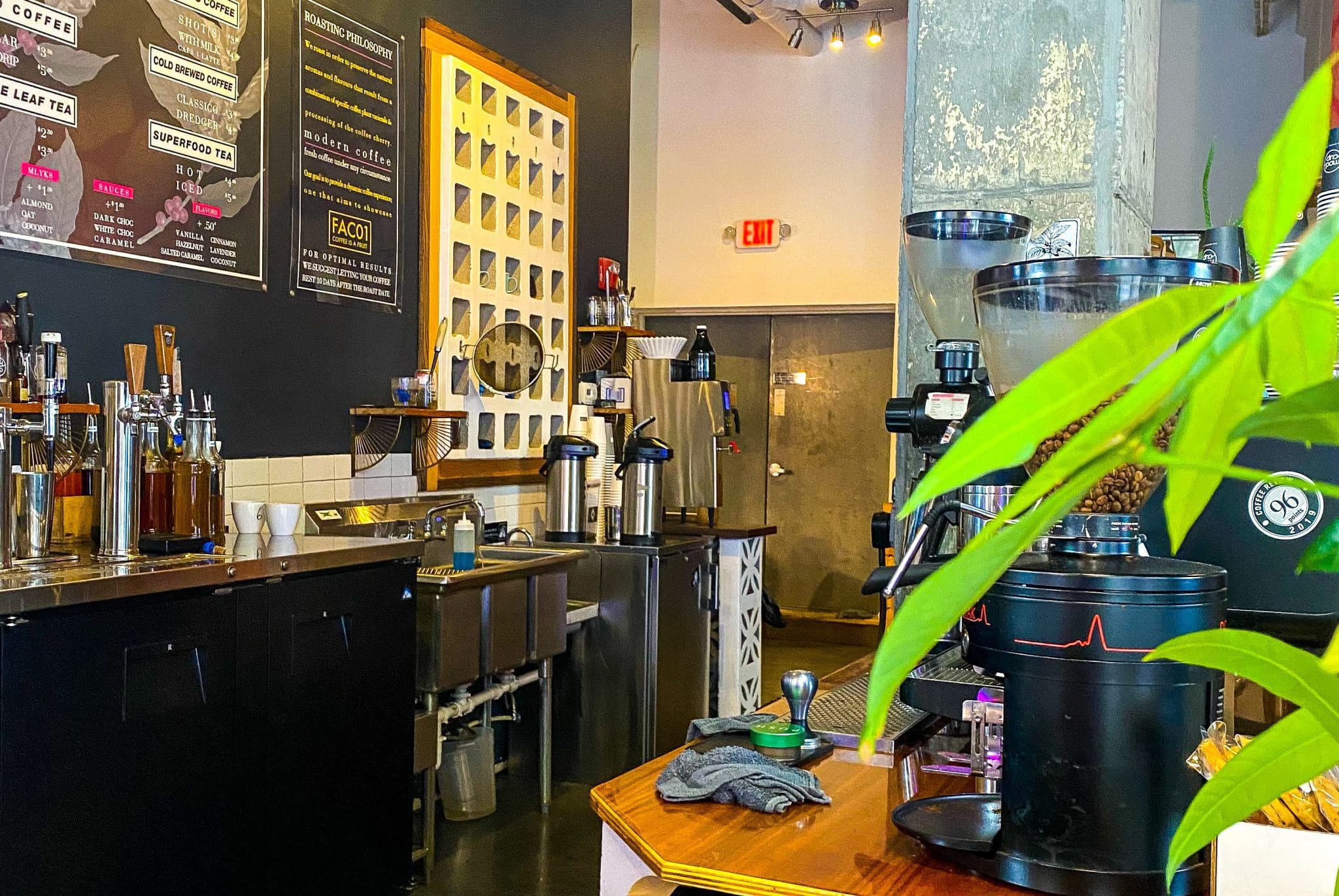
Behind the counter at Modcup Coffee Roastery in Jersey City, NJ
“Coffee is a fruit. Like wine, it has terroir and complexity; how you grow makes all the difference” Clifton explained to me. Still, I wasn’t entirely convinced; so, Clifton and Marcial assembled a tasting with seven coffees for me to try.
Coffee cupping is a practice in which multiple coffees are lined up to be tasted alongside one another. Cupping allows for the taster to effectively differentiate flavor profiles between different coffee beans, roasting techniques, and brewing techniques. This is where the similarity to the world of wine becomes more pronounced.
I have done many wine tastings throughout my career, so it wasn’t all that bizarre for me to wrap my head around. As we began to taste the coffee, with Clifton and Marcial’s knowledge to guide me, the doubt around the coffee craze began to fade, and I knew then that this was not a world to be scoffed at, but embraced.
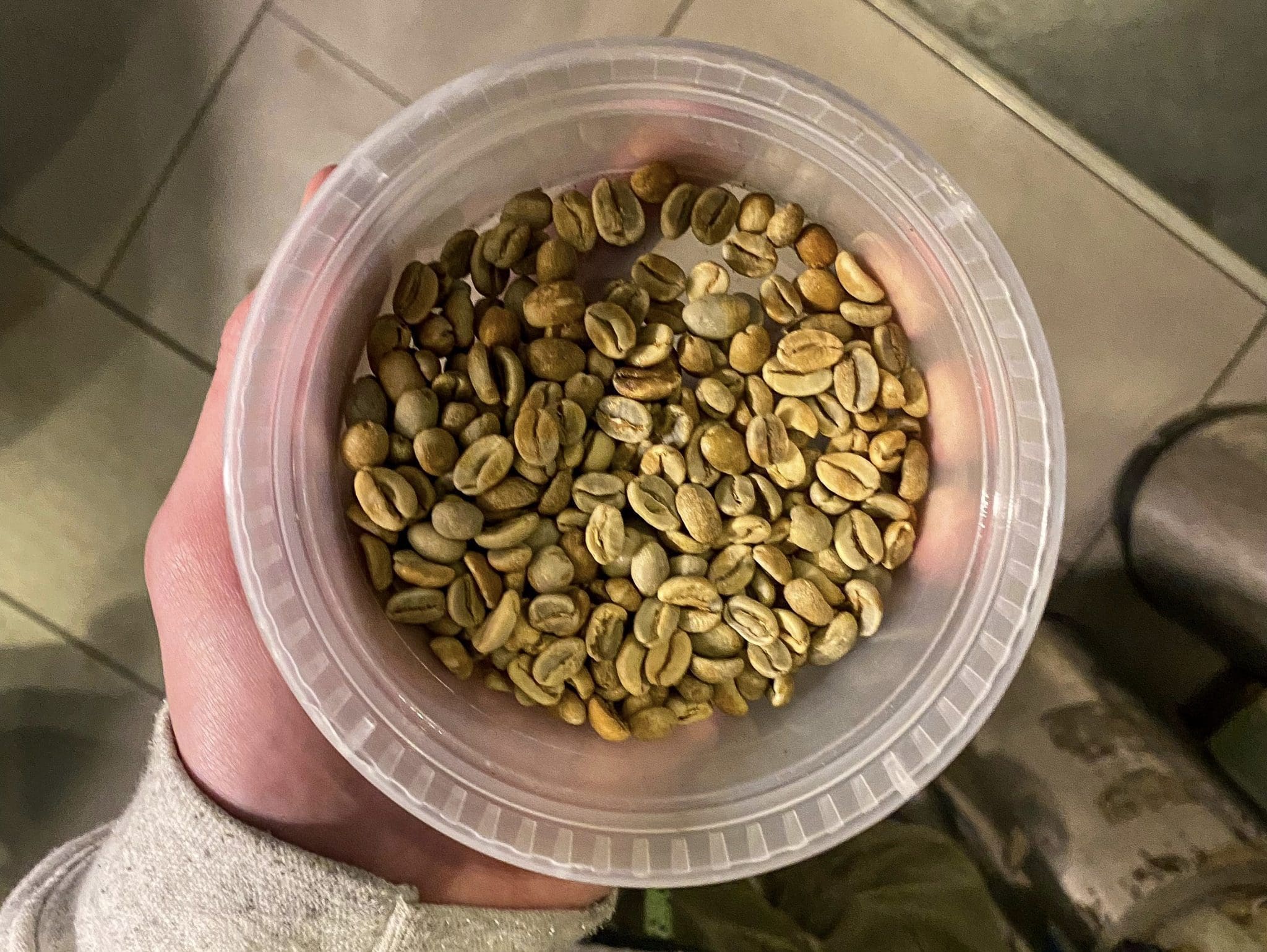
Coffee beans before roasting
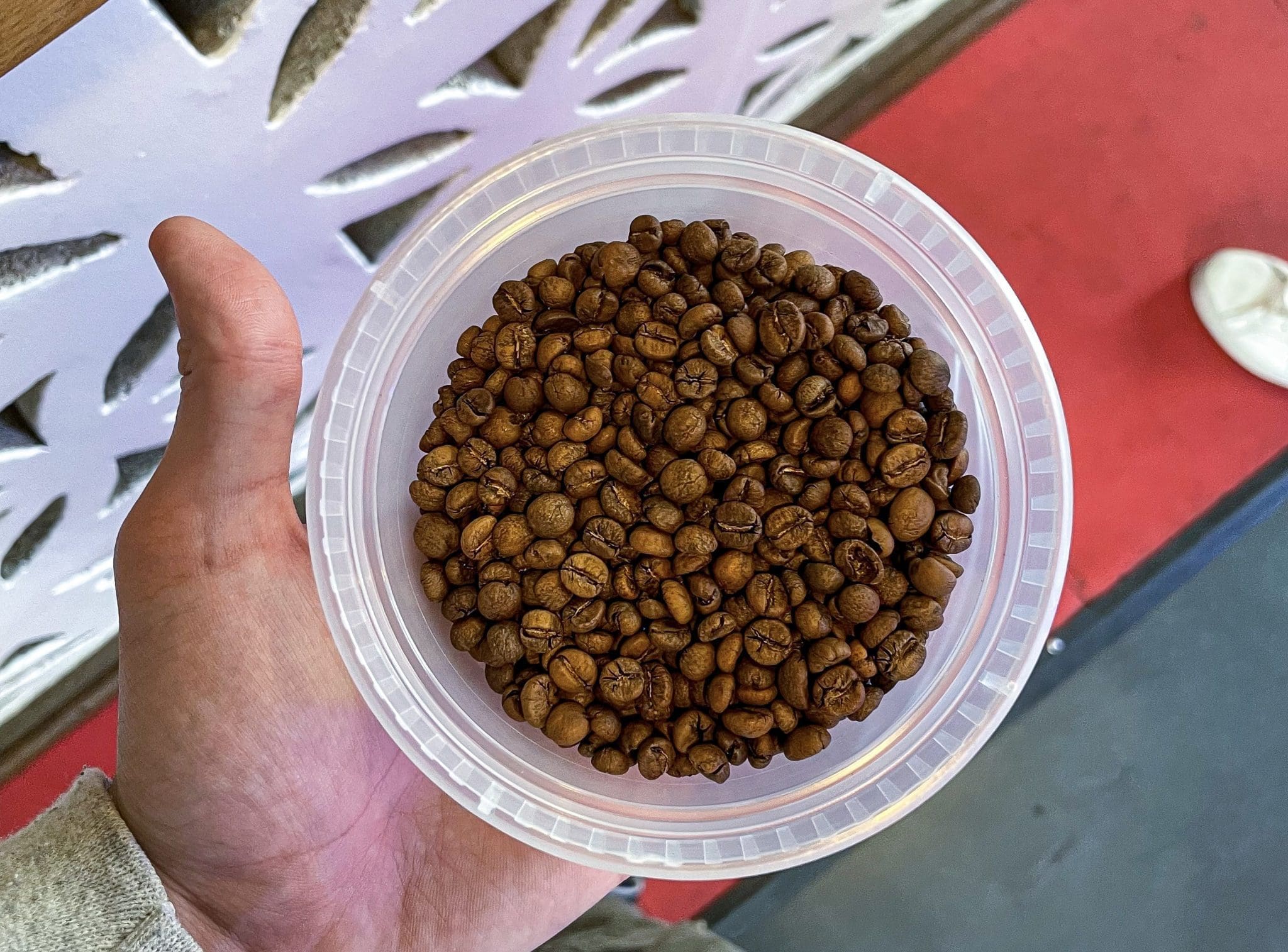
Coffee beans after roasting
Something that stuck out to me was Modcup’s willingness to go above and beyond in crafting a coffee for everyone. Whether it be a cold-brewed coffee with intense floral notes or a hot coffee that is bold and chocolatey—more reminiscent of what Clifton referred to as “a diner cup of coffee.”
During the cupping, I tasted seven coffees but experienced hundreds of different flavor notes and profiles. The first was a Brazilian and Colombian blend that was roasted deeper to emulate a more “familiar” cup of coffee. Notes of chocolate, tobacco, and almond work in unity with a deeply rich aroma to construct the aforementioned diner experience that Clifton told me about. As someone who drinks a basic cup of coffee every morning, this roast was extremely comfortable for me, but the next few we tasted were meant to pull me away from that familiarity.
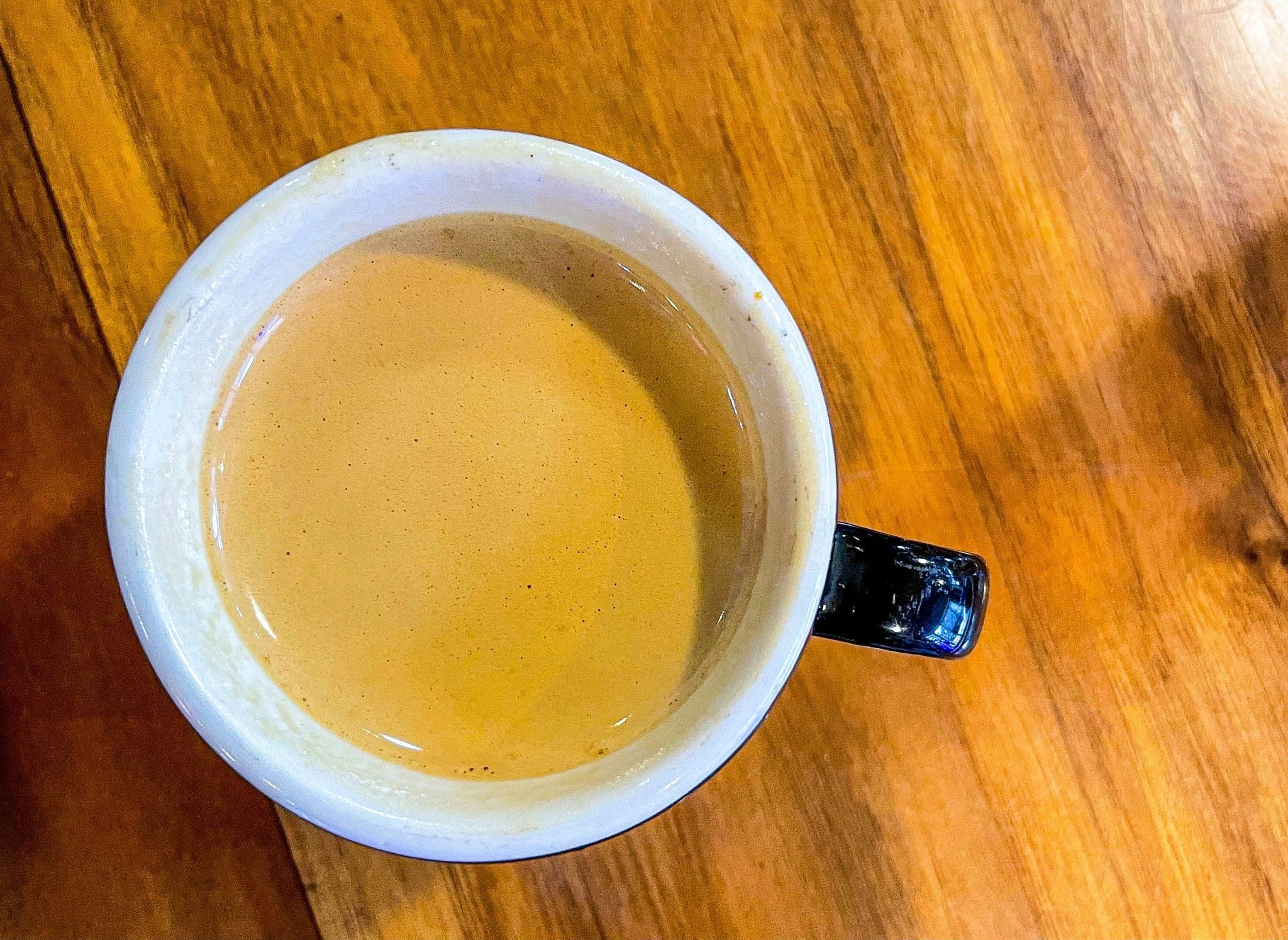
Espresso from Modcup
The most unique brew of the day was the result of a coffee grown in Panama at Elida Estate called Boquete. A lighter roast allowed for the coffee’s true notes to peek through; honey, jasmine, and lemongrass made for a cup of coffee that drank almost like tea. Never in my life have I had anything like this, and it proved further the versatility that coffee has to offer. Slowly, I was peeling away the monotonous filter I have thrown over coffee throughout my life.
Clifton went on to explain how decorated Elida Estate is in the coffee world, producing some of the world’s most expensive and sought-after coffee beans. One bean grown at Elida last year sold for $2,600 a pound at an auction, solidifying it as the most expensive selling coffee in the world.
A lightly roasted Sidra, a hybrid varietal of coffee, was perhaps my favorite brew of the day. Hailing from Cafe Granja la Esperanza in Cali, Colombia, this Sidra was roasted and brewed with artistic precision to create a light and fruity cup of coffee. In juxtaposition with the first brew we tasted—which was familiar and safe—this coffee was anything but that.
Notes of strawberry and watermelon were incredibly apparent, and while that might not be a flavor that many expect when thinking about coffee, it was anything but uninvited. Clifton went on to explain that part of what makes this coffee bean so special is that it is naturally processed as opposed to the more common washing process of coffee beans. Natural processing refers to the act of drying the coffee cherries in the sun over the course of three to six weeks. When they are dried, the seeds are then removed from the rest of the fruit, leaving us with what we know as coffee beans.
Cafe Granja La Esperanza puts a lot of care into the processing of this coffee bean before sending it out to roasteries like Modcup. When it arrives at Modcup, it isn’t ready to be brewed right away—that’s where Marcial comes into play. Marcial explained to me how the roasting process works. From monitoring the temperature and time to creating guides on a program that works for each separate coffee bean that he roasts in the shop. Everything is made with an idea for the final product in mind.
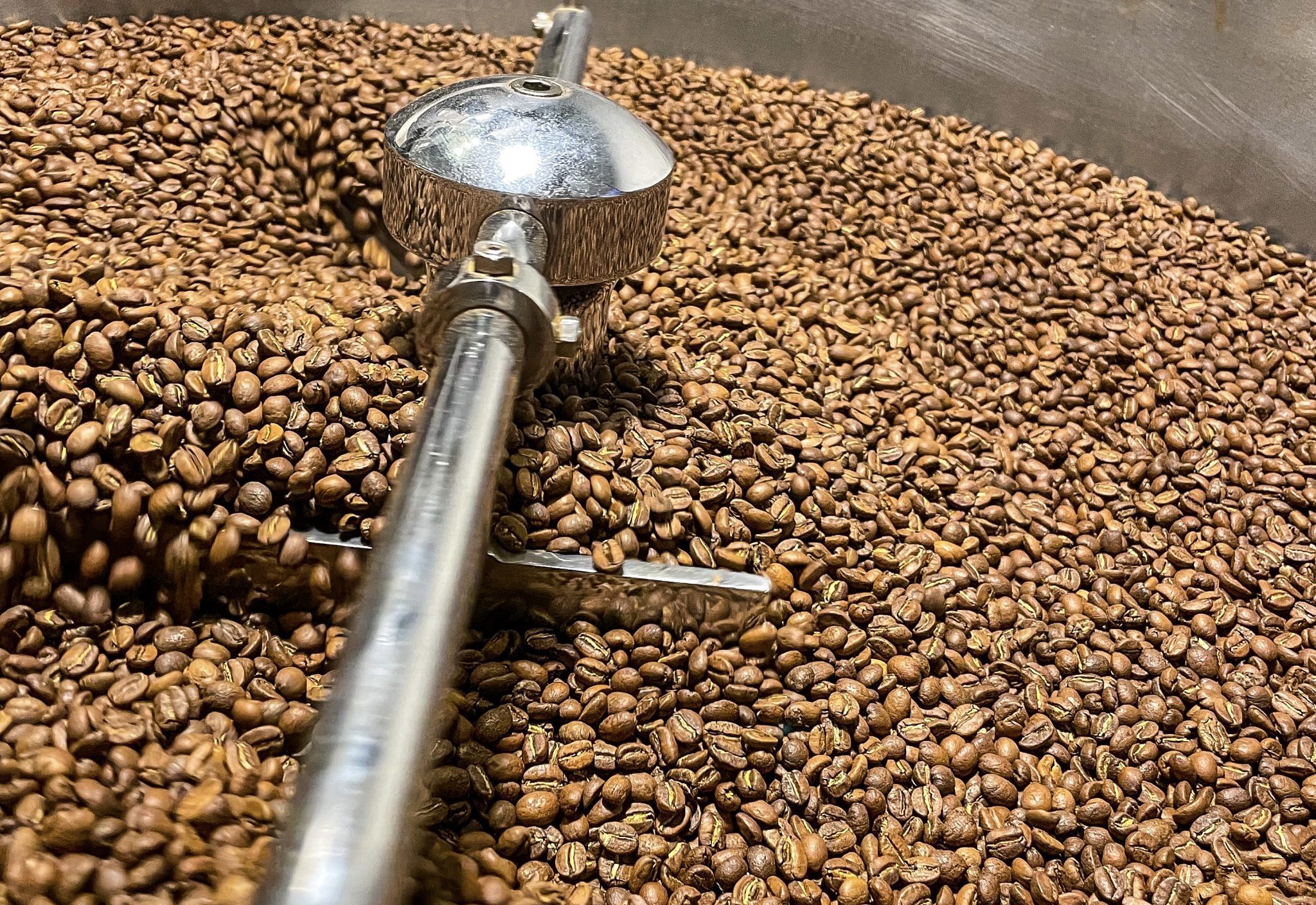
Modcup coffee roaster in action
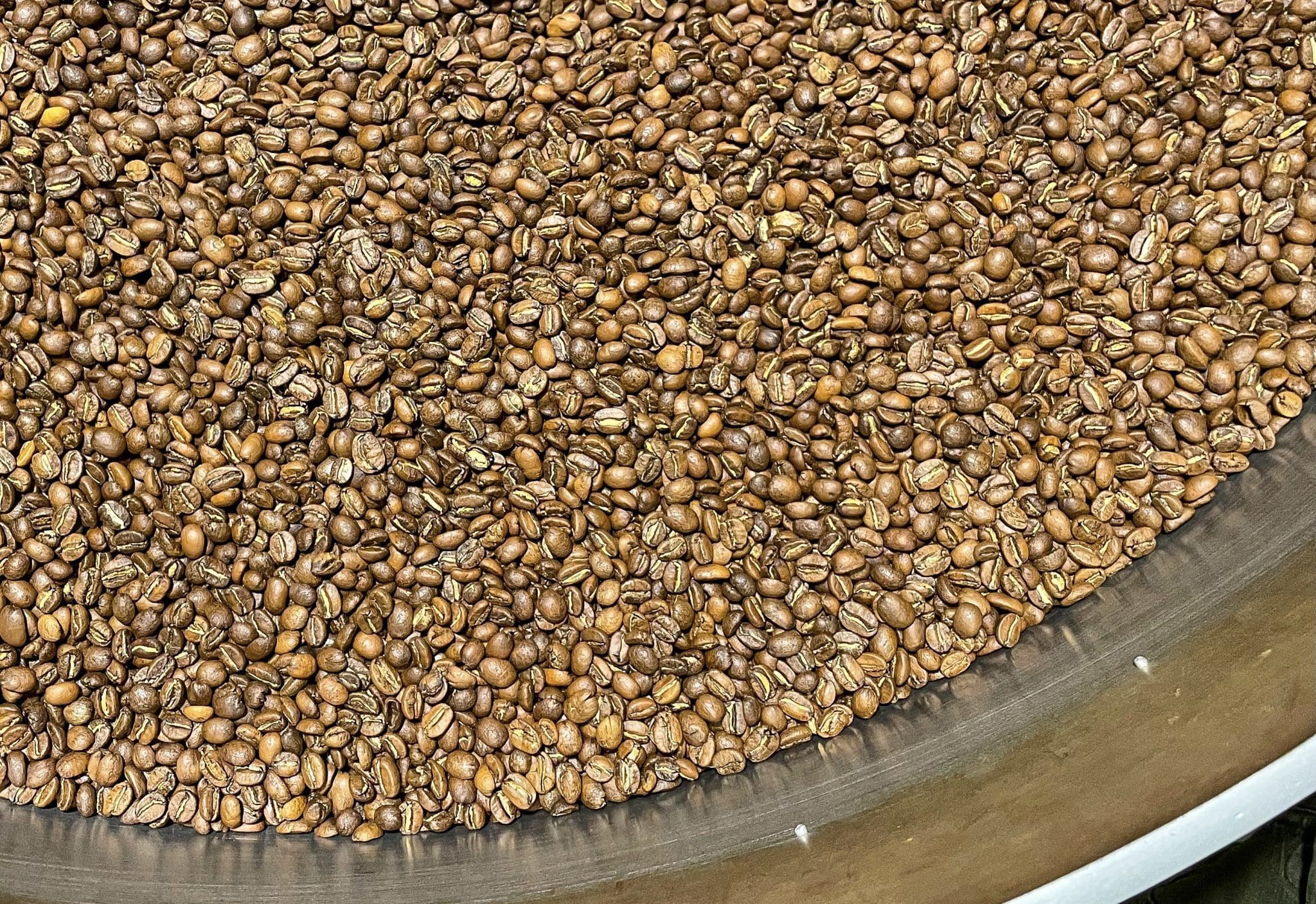
Freshly roasted coffee beans
For Sidra, Marcial wants to avoid destroying the delicate fruit-like flavors at all costs; so, he roasts the bean lighter in order to maintain that integrity. It’s a skill that should be celebrated because Sidra received a score of 95 from Coffee Review, which is the world’s most influential guide for fine coffees.
Coffee Review rated Modcup’s Sidra as a top coffee in the world for 2021. Additionally, a Geisha coffee coming from Colombia was roasted at Modcup in Jersey City before being rated a 96 by Coffee Review, and later on named the number 12 coffee in the world for 2019. Accolades like this are a combination of the farmer’s dedication to a quality product, Clifton’s drive to constantly offer near-perfect coffee products to New Jersey residents, and Marcial’s prowess and expertise in coffee roasting. Coffee, like winemaking, is a team effort.
That effort starts by establishing effective relationships with the very farmers who grow the coffee fruit. What sets a shop like Modcup apart from a more commercial coffee shop is the direct contact to the farms. It is not every day that the person behind the counter pulling your shot of espresso talked to the farmer who grew the beans 2,600 miles away just last week. Aside from a cool story, it assures full transparency of its product. There is no mystery.
I was entirely convinced; coffee is deserving of more attention. Every day, people like Clifton and Marcial throw their all into producing something that is worthy of praise. Starting with sourcing coffee from the best farms in the world, roasting with tenacity and vigor, to finally crafting it into the perfect cup, it is about time that coffee, like wine, is treated with the utmost respect.
About the Author/s
Peter Candia is the Food + Drink Editor at New Jersey Digest. A graduate of The Culinary Institute of America, Peter found a passion for writing midway through school and never looked back. He is a former line cook, server and bartender at top-rated restaurants in the tri-state area. In addition to food, Peter enjoys politics, music, sports and anything New Jersey.
